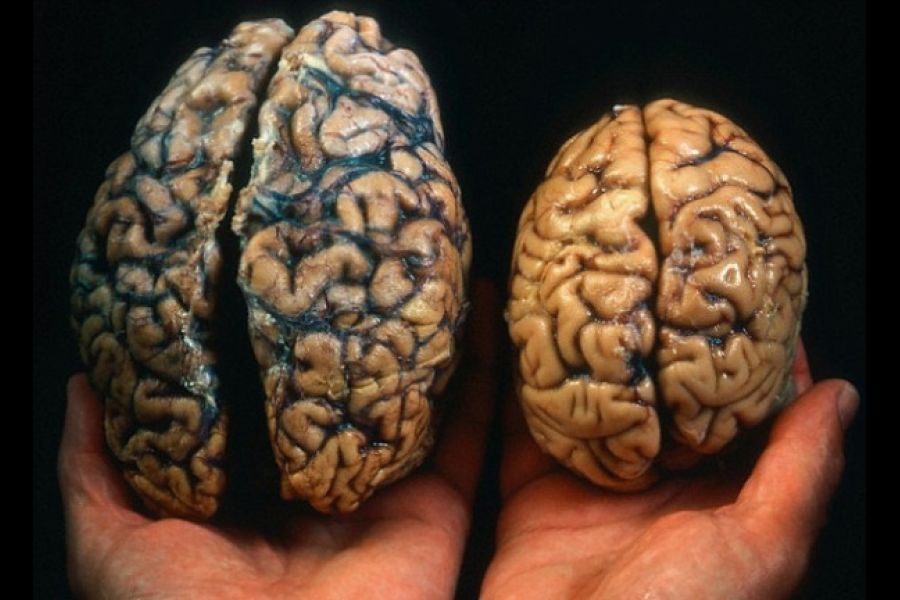Dr. William Brown is a professor of neurology at McMaster University and co-founder of the Infohealth series at the Niagara-on-the-Lake Public Library.
Dr. William Brown
Special to The Lake Report
The size of the brain clearly isn’t everything.
For example, the size of the human male brain may on average be 100 CCs larger than the female brain but in case you haven’t noticed recently, women are fast becoming the leaders in science, medicine and slowly breaking the long-standing stranglehold men have had in politics, at least in democracies.
And elephants and sperm whales possess far larger, more folded neocortices and many times more nerve cells compared to humans. Yet, as clever as they are, they’re no match for humans in most cognitive traits, although like chimpanzees and some other animals, they possess an impressive level of social intelligence, sense of fairness, kinship and caring for one another’s welfare that rival our own when we’re behaving.
Modern humans, and based on recent studies, our extinct cousin species, the neanderthals, developed what anthropologist Richard Leakey called the two cornerstones of human cognitive powers – storytelling and religion. The emergence of both depended on the evolution of sophisticated symbolic language and a powerful enough imagination to create virtual, alternate realities populated by worlds.
To quote Leakey: “One thing we can be sure about … is that once consciousness passed the threshold of self-awareness and death awareness, there welled up in the human mind the Big Question: Why? It is not a straight request for an answer; it is a search for meaning in the midst of uncertainty. What is the meaning of life? What is the meaning of the world I find myself in? How did the universe come to be?”
Posing those questions led modern humans to develop countless creation mythologies to explain the mysteries of life and death and narratives by which the world might be understood.
This innate tendency to imagine worlds other than the obvious physical reality that surrounds us is a feature of most creative artists and scientists, too and was probably a feature of every society from our very beginnings. On the science side of the ledger, we need look no further for examples than the works of Albert Einstein, Niels Bohr, Stephen Hawking and Roger Penrose.
Where would we be without Einstein’s thought experiments, which imagined how space, time, mass and gravity might be related to one another in his famous treatise, “General Relativity.”
Or a favourite of mine is his imagined notion in 1905 of how the random motion of thousands, if not millions of atoms, might account for the random jostling of far larger pollen particles floating on the surface of the water. And going further, how his approach might be used to prove that atoms existed and reveal something of their size.
Or what about Bohr’s intuitive grasp of the quantum world or more recently, the creative work of Hawking and Penrose about the nature of black holes long before the first black hole was actually seen in 2019.
I just finished reading Penrose’s 1999 book, “Shadows of the Mind: A search for the missing science in consciousness,” in which he imagines how quantum mechanics might affect consciousness. For me it was a challenging read, but also an example of what a brilliant mathematician and theoretical physicist can bring to what hitherto has been the sole province of biologists and clinicians, without I might say, much clarity.
That’s what the human mind can do, of which there are plenty of other examples in the creation of music, the visual arts, theatre and all the other arts, and engineering or more to the present, figuring out how we’re going to get through this pandemic.
No other animal has shown the curiosity to ask and attempt to understand how nature works, including figuring out how our brain thinks, feels, plans and generally goes about its conscious and unconscious business.
That reflective curiosity about ourselves and the world around us extending from the farthest reaches of space and beyond to what’s in front of our face, is surely unique among species and one of the subjects of the BRAIN series at the NOTL library.
The BRAIN series begins on Wednesday, March 3, at 2 p.m.. Please register with the NOTL library.









